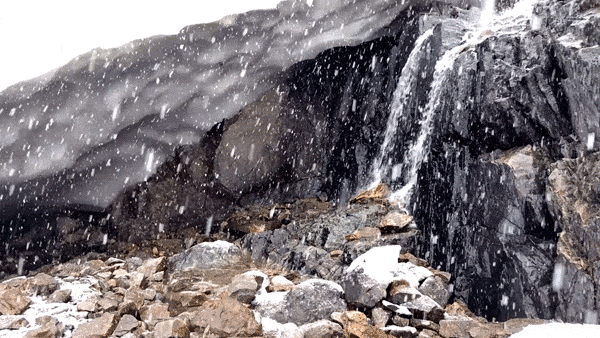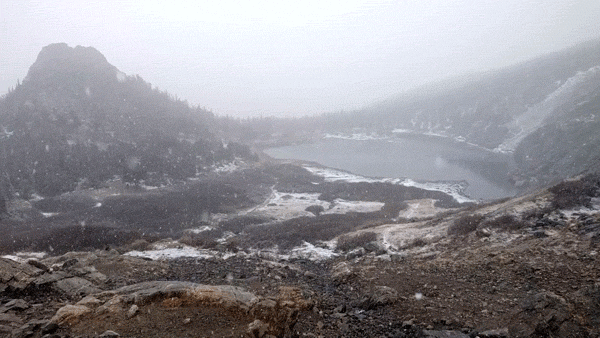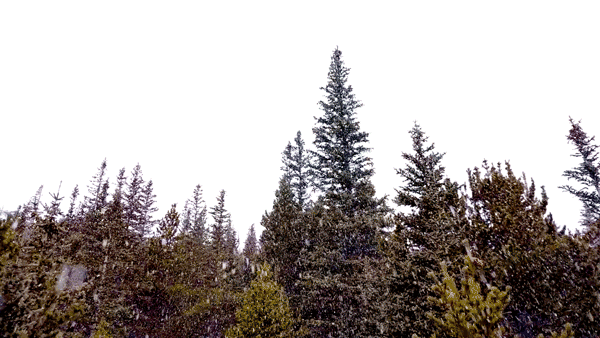No more praying for snow, people. Now we have science on our side.

As you know, a high-pressure "ridge" of air has sprawled across the West through most of the fall, sticking us with insufferable 70-degree days and sunshine.
I had been advocating for a military solution, but that may not be necessary.
"We’ll probably start to have a breakdown of this hot, dry pattern," said Matt Makens, a meteorologist for Weather5280. He's expecting the change to happen Nov. 15 to Nov. 20.
The end of next week, "potentially -- big maybe -- could be our first snow of the season for Denver," Makens said.
Update: As of Nov. 11, the possibility of a Denver storm was looking weaker. We'll see about the mountains. The upcoming weather is looking "like a dud," according to meteorologist Noah Brauer.
He was basing this prediction on his read of global weather prediction systems -- namely the "Euro" model and the United States' GFS model. One of the biggest changes is that there are signs of winter-favorable changes in the Pacific ocean.
"Pretty consistently, for the last three to five days, the longer-term versions of a couple of models have hinted at that weather pattern change late next week," Makens said. Weather5280 goes into a lot more detail in its weekly "State of the Atmosphere" post, which I've been enjoying a lot.

What about the mountains?
Warm weather has been screwing with the ski resorts, forcing Copper Mountain to delay its opening until next week. However, it looks like parts of the Rockies may get some relief this weekend.
Certain models have been showing "a continued chance for snow this weekend for the mountains," Makens said. He's seeing a potential ripple of weather heading toward the state from the West.
"Those resorts along I-70 probably will have enough energy out of it to squeeze out some snow," he said. "Steamboat is banking on that system -- they’ve got to get some natural snow. All that region is kind of looking for Sunday snow."
What about La Niña?
We've heard so much about La Niña, the weather phenomenon. Its brother, El Niño, accompanied some pretty great snow last winter -- but that doesn't mean we'll have a drought this year.
We're currently looking at a weak La Niña, which means storms may track in from the Northwest. The result could be "better snows across northern Colorado," and potential drought in the south, Makens said.
"That’s with a very classic, very simplistic view of Niña," he added. Next spring might see the Niña pattern fade. "As that weakens, that may be advantageous for heavier spring moisture than winter," Makens said.

What if this doesn't come true?
Resume burning sage and holly. Make a new Twitter account and say hateful things to your deity of choice. Break up with science. Or acknowledge that weather is ridiculously complicated, and our planet is going through an unprecedented period of climatic change that threatens a lot more than your ski season.










